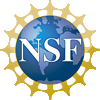RISE has developed science education curricula and resources with generous funding from the following federal agencies and foundations:
» National Institute on Drug Abuse
 NIDA supports science education and outreach at the K-12 level. The institute has provided funding for several RISE projects including the Pharmacology Education Partnership, SEEK About Tobacco, and Rex-Real Experiments .
NIDA supports science education and outreach at the K-12 level. The institute has provided funding for several RISE projects including the Pharmacology Education Partnership, SEEK About Tobacco, and Rex-Real Experiments .
» National Institute on Alcohol Abuse and Alcoholism
 NIAAA supports science education and outreach at the K-12 level. The institute has provided funding for several RISE projects including the Alcohol Pharmacology Education Partnership and “DiVE into Alcohol”.
NIAAA supports science education and outreach at the K-12 level. The institute has provided funding for several RISE projects including the Alcohol Pharmacology Education Partnership and “DiVE into Alcohol”.
» Burroughs Wellcome Fund
The Burroughs Wellcome Fund provides funds for the Student Science Enrichement Program or SSEP. RISE was the recipient of a SSEP award to fund LEAP (Launch into Education About Pharmacology), an enrichment program for high school students at Duke. More recently, LEAP has been implemented for Duke rising sophomores LEAP »
» National Institute of General Medical Sciences
 NIGMS is a major funder of training programs for graduate students in biomedical sciences. Lisa Linnenbrink-Garcia in the Department of Psychology & Neuroscience at Duke and Rochelle Schwartz-Bloom have received funding from the National Institute of General Medical Sciences to offer LEAP (Launch into Education About Pharmacology) to Duke rising sophomores. The program is designed to foster interest in biomedical/biobehavioral research careers. LEAP »
NIGMS is a major funder of training programs for graduate students in biomedical sciences. Lisa Linnenbrink-Garcia in the Department of Psychology & Neuroscience at Duke and Rochelle Schwartz-Bloom have received funding from the National Institute of General Medical Sciences to offer LEAP (Launch into Education About Pharmacology) to Duke rising sophomores. The program is designed to foster interest in biomedical/biobehavioral research careers. LEAP »
» National Science Foundation
 The NSF offers numerous funding mechanisms to support science education in both formal and informal learning environments. RISE received funding from the NSF-SENCER program to develop a high school biology course called “Infectious Disease: Superbugs, Science, and Society”. Superbugs » NSF also funds the Robert Noyce Training Fellowship for graduate students enrolled in the Duke Master of Arts in Teaching (MAT) program. Rochelle Schwartz-Bloom served as Co-Principal Investigator of the NSF grant, which funds approximately 5 Noyce Scholars each year. Duke MAT»
The NSF offers numerous funding mechanisms to support science education in both formal and informal learning environments. RISE received funding from the NSF-SENCER program to develop a high school biology course called “Infectious Disease: Superbugs, Science, and Society”. Superbugs » NSF also funds the Robert Noyce Training Fellowship for graduate students enrolled in the Duke Master of Arts in Teaching (MAT) program. Rochelle Schwartz-Bloom served as Co-Principal Investigator of the NSF grant, which funds approximately 5 Noyce Scholars each year. Duke MAT»